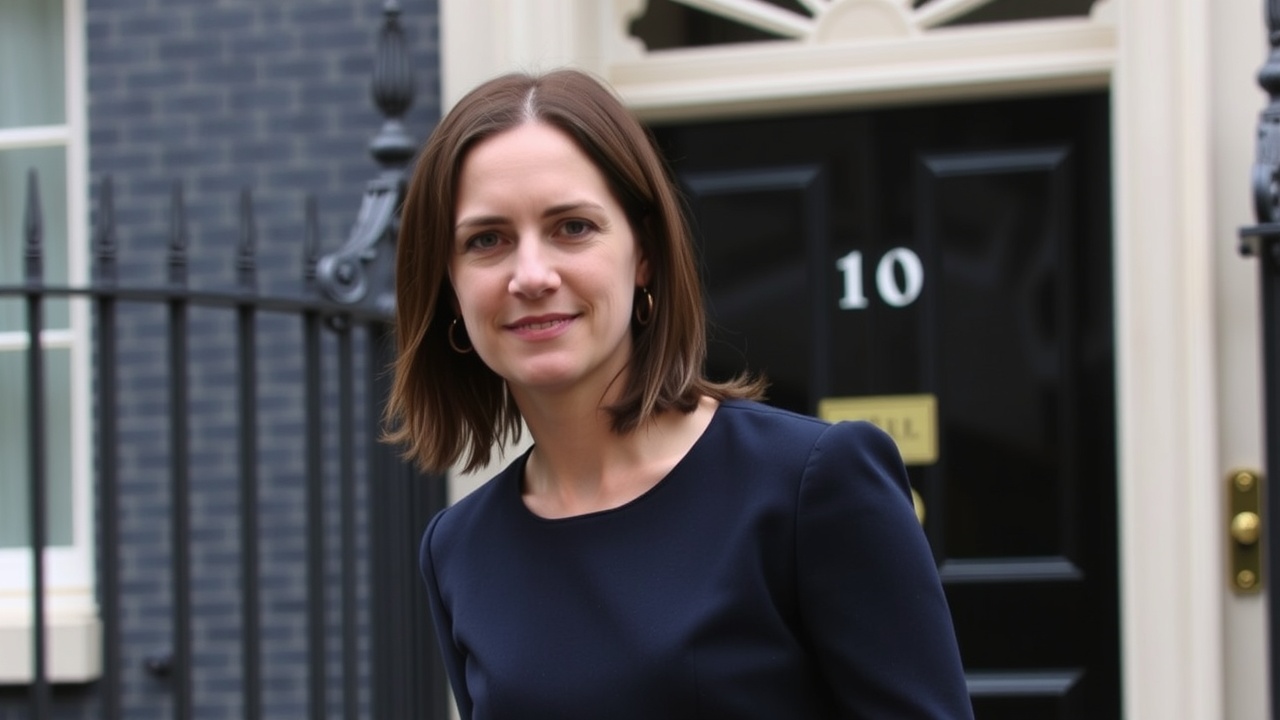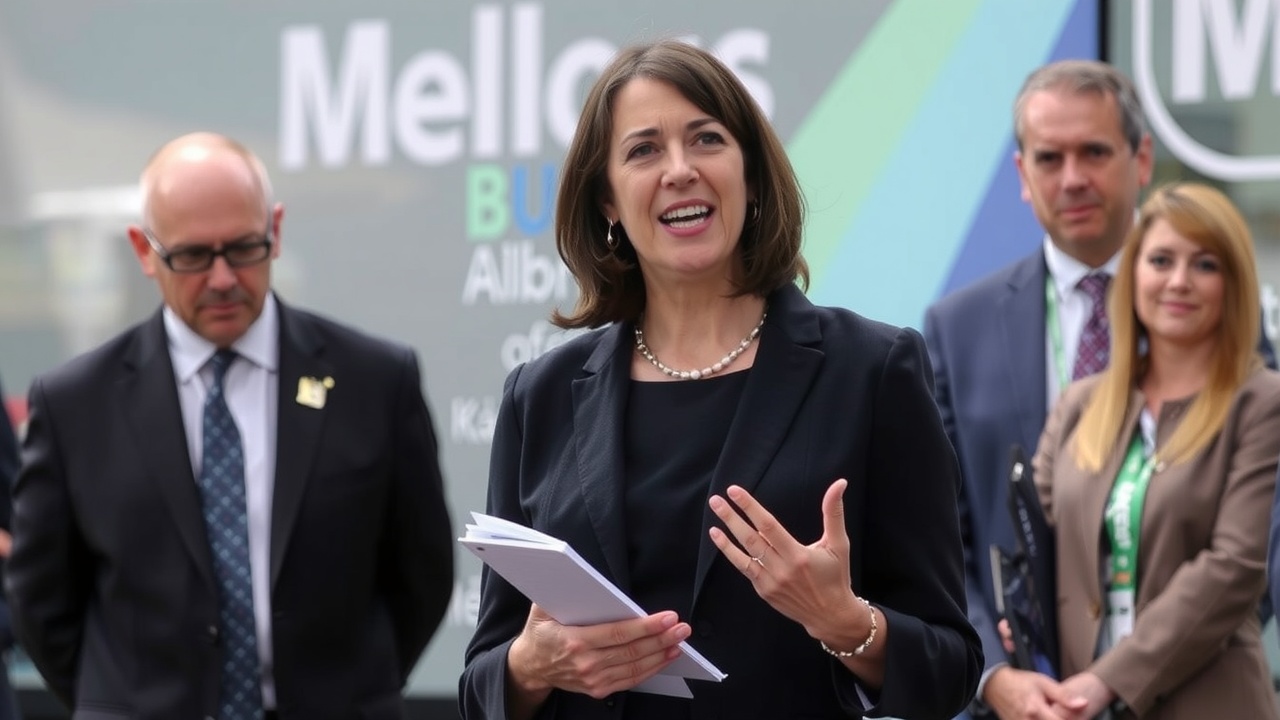
This autumn, the chancellor has not ruled out tax increases, despite announcing cash infusions for multiple departments in her June Spending Review
Given the strain on the public coffers caused by weak economic growth and overburdened public services, Chancellor Rachel Reeves has declined to rule out tax increases this autumn.
In the face of higher business taxes and disruptions to global trade, the economy shrank 0.3 percent in April and is now exhibiting signs of slowing after growing more than anticipated in the first quarter of the year.
Even with the Bank of England base rate reductions over the past year, borrowing costs are still high.
A weak economy and high debt costs reduce the Treasury's fiscal headroom, or the amount of flexibility the government has to raise expenditures or lower taxes.
This has placed Reeves in a difficult situation. She has two choices if she runs out of financial headroom heading into the Autumn Budget because she is not allowed to borrow money to cover her daily expenses due to fiscal regulations.
The chancellor has the option of raising taxes or reducing spending.
The first choice will be difficult. Spending cuts are challenging because the government has ruled out a return to austerity, especially in light of intense public scrutiny.
Reeves took a different tack in her Spending Review on June 11th, stating that department budgets would rise by 2.3 percent annually in real terms until 2028/29.
While certain departments, such as the Foreign Office and Home Office, will experience budget cuts, other departments will receive significant funding increases.
Defense spending will rise to 2 percent of GDP by 2027, the NHS will receive an additional 29 billion annually, and social and affordable housing will receive an additional 39 billion over the next ten years.
Maybe it's not surprising. There has been strong opposition to any budget cuts the government has attempted since taking office.
In recent local council elections, Labour lost seats to Reform as a result of the unpopular decision to eliminate the universal Winter Fuel Payment last year. The result was a humiliating U-turn on the policy by the government.
The party's backbenchers have also expressed disapproval of the benefit cuts that were announced in March.
As a result, tax increases are anticipated this fall.
In an interview with the BBC the day following her Spending Review, Reeves declined to rule out this possibility. She stated that "no chancellor can write another four years of budgets within a first year of government." You are aware of the current state of uncertainty in the world.
"There's not enough money for everyone."
The June Spending Review was a "reminder that there's not enough money to go around," according to ING economist James Smith, despite having "few surprises."
When the Autumn Budget is released later this year, he believes the Office for Budget Responsibility (OBR) will lower its 2026 growth projection. He believed that would eliminate half of the Treasury's fiscal headroom.
"Even before taking into account the growing strains on the public coffers, the chancellor is probably in the red due to further downgrades to trend productivity growth projections and net migration," he continued.
Increases in taxes are "highly likely" because ING estimates that the total shortfall could reach "at least 20 billion".
The independent think tank Institute for Fiscal Studies (IFS) notes that the chancellor has had to make some difficult balancing moves. "We can't have everything we might want," stated Paul Johnson, director of IFS, due to financial limitations.
Johnson went on to say that Reeves will now have "all her fingers and all her toes crossed" because the fiscal regulations are currently being complied with "by a gnat's whisker." He acknowledges that a wrong turn will "almost certainly spark more tax rises" in any case.
The issue of tax increases.
The issue facing the government is that taxes are already at an all-time high. Since 2021, personal tax thresholds have been frozen, and inflation has been high. This indicates that the fiscal drag alone is putting many people in a higher tax bracket.
Reeves had to find alternative ways to balance the books last October due to a difficult fiscal environment, despite Labour's manifesto vowing not to raise income tax, employees' national insurance, or VAT.
Her Autumn Budget for 2024 placed a strain on companies. A total of 40 billion in tax increases were announced, the majority of which were financed by higher employer National Insurance contributions.
However, it's a delicate balancing act, and every choice has unforeseen repercussions. This case suggests that raising National Insurance has harmed company confidence and raised the possibility of lower profits and employee layoffs.
Last fall, there was also a focus on wealth taxes, with announcements made regarding pensions, inheritance taxes, and capital gains taxes. As a result, more affluent people are emigrating from the UK to countries with lower taxes.
Which taxes are subject to an increase?
If taxes are raised this fall, Reeves will have to find unexplored opportunities.
Given how severely the National Insurance hike has already affected businesses, further increases in business taxes would be risky. It would also be politically risky to raise the three main working taxes, as Labour excluded this from its manifesto.
We examine a few areas that the chancellor may want to look into further.
1. Revenue tax
The chancellor may change her mind about lifting the personal tax threshold freeze, for instance by moving the deadline from 2028 to 2030.
Sarah Coles, head of personal finance at investment platform Hargreaves Lansdown, stated, "It's politically useful because it increases the tax take, without actually being a tax rise."
In the meantime, Coles continued, "the issue is that this will raise money in future years beyond 2028 so won't help in balancing the books."
Some may view it as a breach of the government's pledge in the manifesto to avoid raising income taxes.
2. Pensions that sacrifice salary
Salary sacrifice agreements have also been the subject of conjecture.
As of right now, workers can contribute to a pension by forgoing a portion of their income. Because you pay less in income taxes and your employer and you pay less in national insurance, it is a tax-efficient arrangement.
This year's May saw the release of an HMRC report that examined the potential consequences of altering the regulations. The previous administration commissioned the report in 2023, but it has sparked concerns that current tax breaks may be reduced.
The financial planning partner at wealth management firm Evelyn Partners, Gary Smith, stated, "Given the strains on the public coffers, it would be surprising if no one in government was looking at this report, as it's not the first time that salary sacrifice has come under the spotlight as a potential area for shoring up the tax take."
3. Pensions
When pensions are added to the inheritance tax (IHT) net starting in April 2027, a sizable tax hit is already imminent.
Given that the government wants to use pension assets as a growth engine, Reeves might be hesitant to force them to make any more changes.
According to recent data, there is a rise in the number of people raiding their pension at age 55. Some of them do this in order to make lifetime gifts in the hopes of lowering their IHT.
However, there is always conjecture about whether the government will reduce pension tax relief or pension tax-free cash whenever funds need to be raised.
In order to provide equal pension tax relief to all taxpayers, some have previously proposed implementing a flat rate. At the moment, it is paid at your marginal rate.
From an operational standpoint, this would be challenging to execute, especially for participants in "net pay" plans where their pre-tax income is used to fund their pension contributions. HMRC would essentially have to impose a separate tax charge in order to recover the funds.
Reducing or eliminating the tax-free cash allowance would also be a risky decision because of how well-known and widely accepted this benefit is.
Laith Khalaf, head of investment analysis at platform AJ Bell, stated that the chancellor should take proactive measures and implement a pensions tax lock, ruling out changes to tax-free cash or pension tax relief for the remainder of this parliament, rather than allowing uncertainty to frighten savers.
"A strong commitment would provide investors with the assurance they need to make long-term plans and provide genuine impetus to the retail investing revolution that Rachel Reeves claims she wishes to support."
4. Investments
Further measures involving the capital gains tax are unlikely this time around because Reeves raised the rates in the previous budget. Coles does not believe that dividends are likely to be targeted either.
"Even though Angela Rayner submitted a memo to the Treasury in March that was leaked last month, dividend tax has already been squeezed significantly in recent years," she said.
"The tax-free allowance was cut from 2,000 in April 2023 to just 500 today after the rates were raised in April 2022. Making dividend investing less lucrative would be counterintuitive, considering how alluring the UK market is to investors looking for dividends and the government's desire to promote investment in the country.
Potential ISA reform is likely to target cash savers rather than investors. In an effort to promote an investing culture, Reeves has ruled out reducing the total ISA allowance of £20,000. However, he may restrict the amount that savers can transfer into cash savings accounts.
5. The inheritance tax
The government has been under fire recently due to changes to agricultural property relief that stoked farmer ire, making inheritance taxes a contentious political issue.
Nevertheless, don't rule out more modifications. If Reeves wants to increase tax revenues in this area, she might think about tightening the rules on gifts.
As long as you outlive the gift by seven years, you can donate assets during your lifetime to avoid paying IHT under current regulations.
After three years, something known as taper relief takes effect, which means that if the gift-giver dies at this time, a lower rate of IHT is applied. Every year that goes by after the three-year mark causes the IHT rate to decrease even more.
For instance, an IHT rate of 32% is applied if a person passes away three to four years after giving a gift. An 8% rate is applied if they die 67 years after giving a gift.
Reeves might think about reducing the generosity of taper relief if she wanted to tighten the rules around gifts. As an alternative, she might alter the regulations to make it take longer for gifts to qualify for exemption.
Previously, experts cautioned that unless the rules were applied retroactively, which seems unlikely, this would not raise much money this parliament.














Leave a comment on: Autumn Budget 2025: Could Rachel Reeves target certain areas and will taxes increase further?